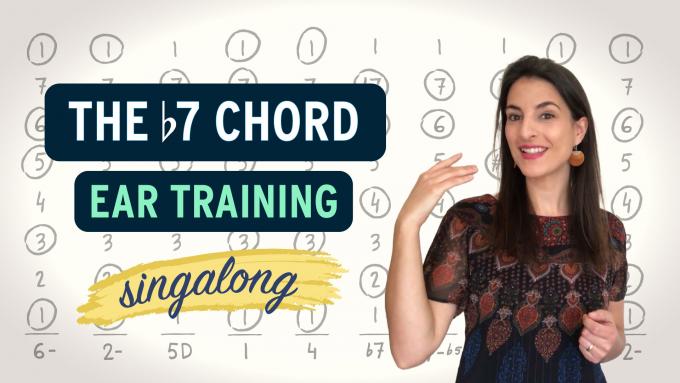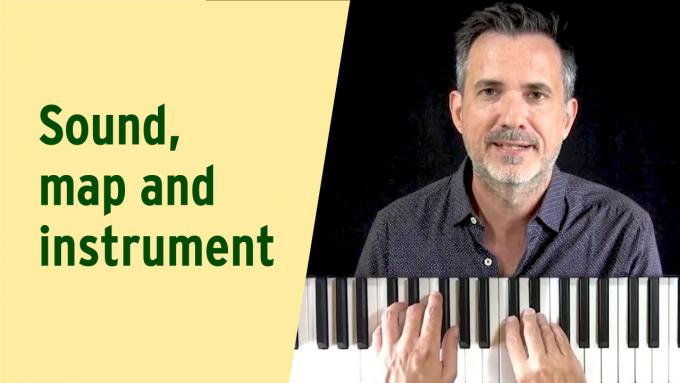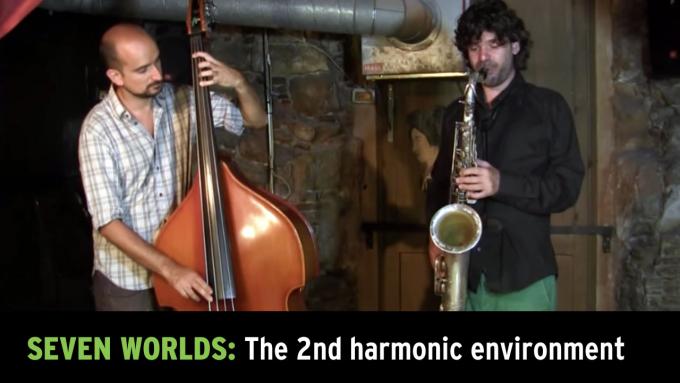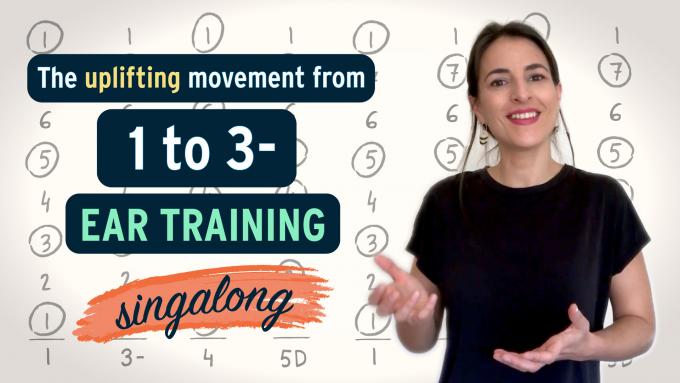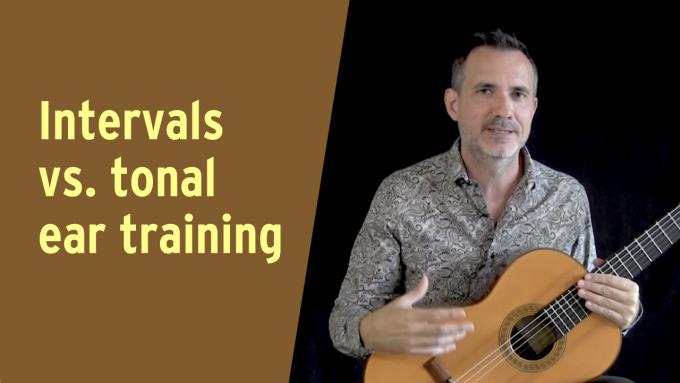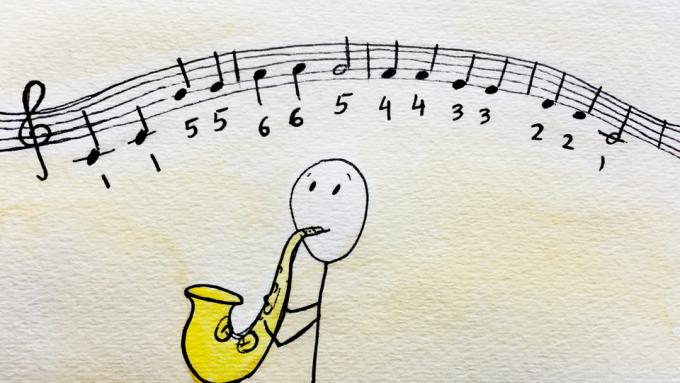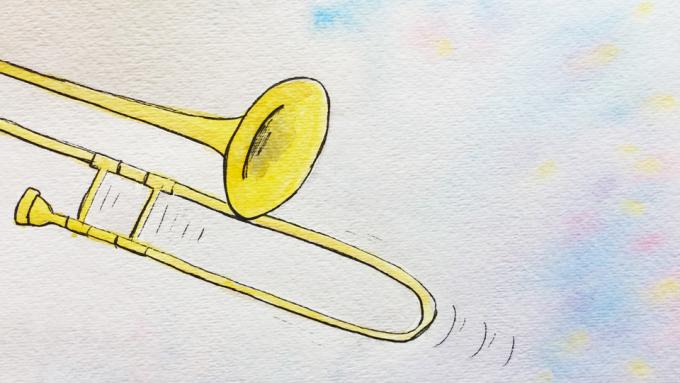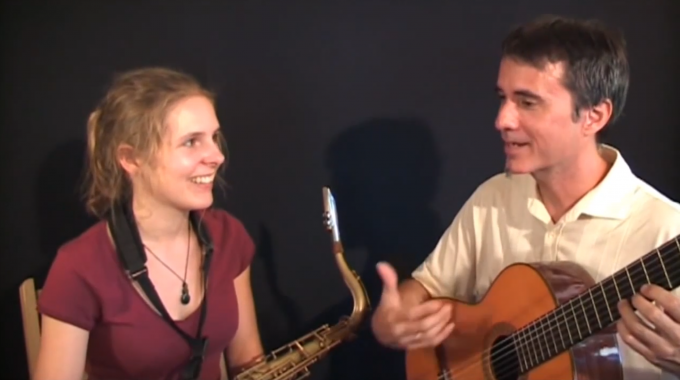In this video we sing Melody Paths over a long chord progression which includes the beautiful b7 chord. All of the chords in this chord progression come directly from the key of the music except for the b7 chord and the 3D chord, which both introduce notes from outside the key.
In this video I illustrate the concept ‘Sound, Map and Instrument’ from my book Improvise for Real. This principle guides our practicing and ensures that as our musical knowledge grows, our ear doesn’t get left behind.
This is a demonstration of some of the sounds we can create with IFR Exercise 2: Melody. Throughout this entire modal improvisation, both musicians are using just seven notes.
In this lesson we study the uplifting movement from the 1 chord to the 3- chord, which is very common in popular music. And we will sing Melody Paths over the chord progression 1, 3-, 4, 5D.
In this video I demonstrate why tonal ear training is so much more powerful than listening for intervals, especially over long or complex chord progressions.
I'm currently singing and playing short tunes like nursery rhymes, hymns, etc. The way I do it is that I will play a tune only once and try to make my best attempt at playing the correct notes the very first time. Is this approach a good one?
I'm wondering about the trombone? The image you use of the notes being connected as one long chain doesn’t really fit with the trombone because the notes are not evenly spaced. Do you have any suggestions?
This is a demonstration of the singing activity from the chapter ‘Understanding Begins with Listening’ from Improvise for Real. It's the first step to learning to recognize both chords and melodies by ear.
